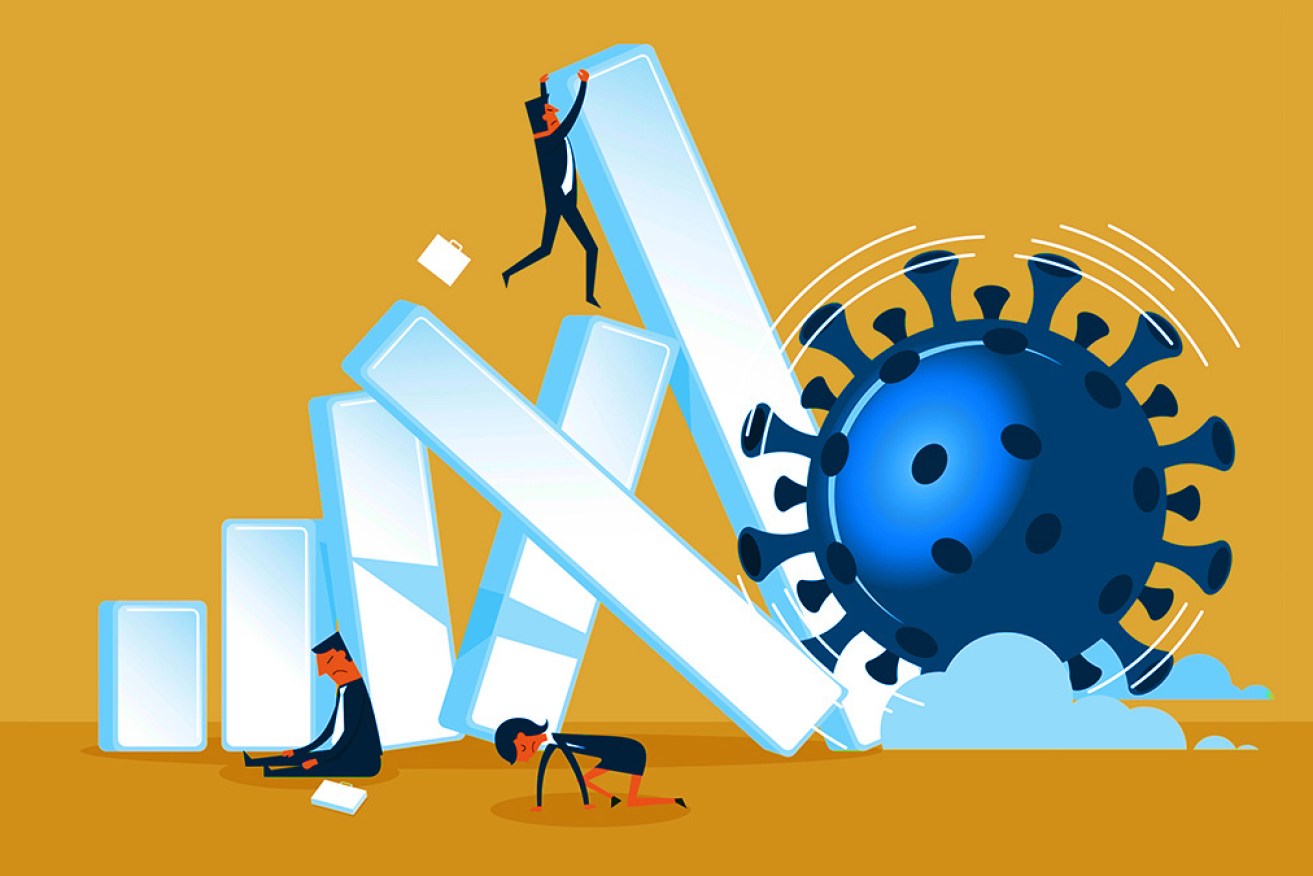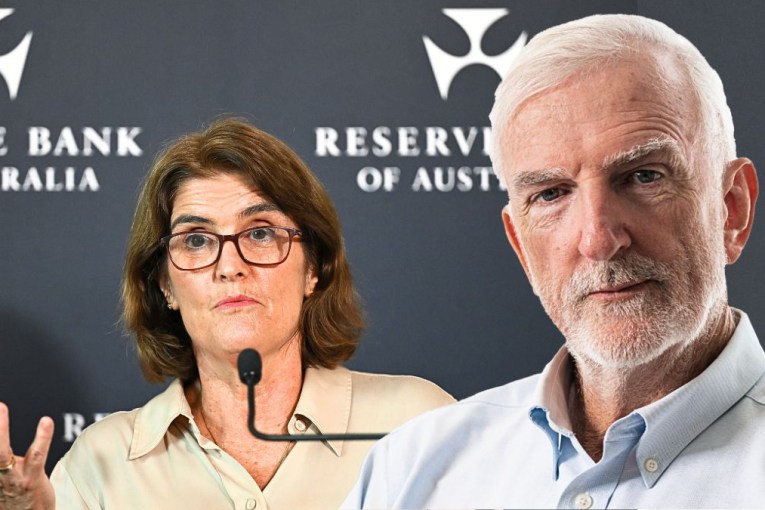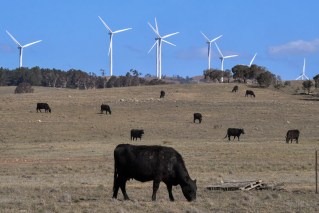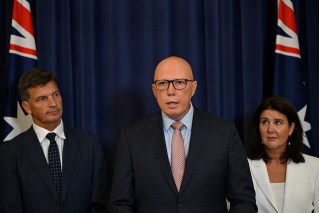The coronavirus is fast turning Australia into a society of haves and have-nots


Australia's return to 'normal' life should involve tackling inequalities in our society, writes Rachel Nolan. Photo: Getty
The coronavirus crisis has taken a long-term trend of rising inequality in Australia and magnified it at astonishing speed.
As self-isolation forced business to shutter and workers to relocate to home, the pandemic has suddenly divided society by splitting Australia’s 13 million workers into three groups:
- Knowledge workers who are able to work from home;
- Frontline workers, a broad group ranging from doctors to supermarket checkout operators who still have jobs but now risk contracting coronavirus at work; and
- Others: The people who now find themselves unemployed or seriously underemployed as a result.
The three categories aren’t final.
An increase in community spread could see the out-of-work group grow as mining, construction and non-essential retail is shut down.
A long shutdown could mean knowledge workers are stranded as the stream of work brought about by past investment decisions dries up.
The challenge, beyond the headline story of rising unemployment and underemployment, is that the people most affected were already the worst off.
A detailed analysis of Australian Bureau of Statistics data undertaken by the McKell Institute indicates the current workforce split is about 40/40/20, with 40 per cent of the workforce being knowledge workers, 40 per cent frontline workers and up to 20 per cent unemployed or underemployed.
The ABS doesn’t formalise categories such as ‘knowledge’ or ‘frontline’ workers but it does split the workforce by occupation and industry.
Our analysis is based on an assessment half of the workforce in desk-based occupations; professionals, administrative workers and white-collar managers are knowledge workers who can still go to work.
The nearly 30 per cent of the workforce in education, health and public administration, and safety are joined by some other categories to create a 40 per cent frontline cohort.
That leaves the almost 10 per cent employed in the key shuttered industries of accommodation and food services, are joined by some others to create a figure of around 20 per cent unemployed or underemployed.
The McKell analysis is consistent with a Reserve Bank prediction that total hours worked will fall by 20 per cent, and with early ABS data showing that even in the first weeks of the lockdown, hospitality and arts work was quickly declining.
Enforcing inequality
The terrible irony of COVID-19 is that the people most likely to be working from home were already better off.
Before the pandemic, the knowledge worker categories of managers, professionals and clerical workers had median wages of $32 to $47 an hour.
The most affected categories of labourers, tradespeople and personal service workers had pre-pandemic median wages of $25 to $30 an hour.
When we look at the number working in each occupation, we conclude median wages were 40 per cent lower for affected workers.
While the federal government has been praised for its stimulus packages, which have raised the rate of JobSeeker (colloquially ‘the dole’) to $1100 per fortnight and added a $1500 JobKeeper payment, these payments will leave many unable to meet their living expenses.
The average Australian household has living expenses of $2850 per fortnight and most of them are fixed, including an average of $280 for housing (noting that’s much higher for some) and $240 for food.
The upshot is that it would take two people on JobKeeper to meet average living expenses.
Affected households without that will be unable to pay their bills and will quickly find themselves drawing on super, despite the risks identified, borrowing from outfits like payday lenders or selling assets.
In contrast, knowledge workers may be better off, maintaining a wage while living expenses such as travel to and from work, recreation and child care plummet.
They may also be oblivious to the suffering.
Unaware of hardship
In normal times, people mix across socio-economic groups, but in isolation our insight into society becomes limited to colleagues (often on Zoom), family, Facebook friends and the news.
So if a knowledge worker doesn’t know anyone who’s lost their job, they may simply be unaware of the hardship around them.
Well before the coronavirus hit, the McKell Institute had undertaken detailed work arguing for policy reform to address Australia’s poor record on inequality and economic mobility, and the ability of a person to rise above the economic circumstances into which they were born.
Our Mapping Opportunity report had argued a digital economy could see poor kids left behind, we’d argued for a Social Emergency Savings scheme as an alternative to payday lending, and we’d made the case for tax reform.
It’s a tragedy that right now some of the risks we’d identified – like poor children being left behind because their families lack internet or the skills to guide them through digital learning – are playing out behind closed doors on the fringes of cities and in regional areas.
As Australia becomes hopeful of an early return to ‘normal’ life, we should also be mindful of the inequalities the coronavirus lockdown has exposed.
We should prioritise the tax and industrial policies, the education system and the social safety net which support a stronger and more equitable society.
Rachel Nolan is a former Queensland finance minister. She is the executive chair of the McKell Institute, Queensland, an independent, progressive public policy think tank








